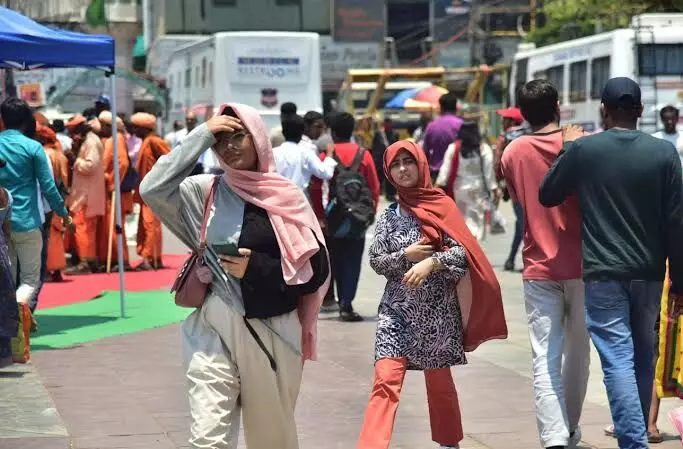76% rainfall deficit in Telangana: Hyderabad copes with heat and humidity
Meteorologists link the delay to changes in monsoon wind patterns that have momentarily shifted away from Telangana
By Anoushka Caroline Williams
76% rainfall deficit in Telangana: Hyderabad copes with heat and humidity
Hyderabad: Hyderabad is experiencing a frustrating mix of high humidity, soaring temperatures and a stubborn delay in rainfall. Despite cloudy skies and breezy afternoons, monsoon showers have largely stayed away from the city, leaving both residents and meteorologists concerned.
According to the Telangana State Development Planning Society (TSDPS), rainfall between June 1 and July 12 was just 10.6 mm, compared to the seasonal normal of 44.7 mm, a 76 per cent deficit.
“This weakening of the monsoon is temporary, but it’s having a critical impact,” said meteorologist KS Sridhar, speaking to NewsMeter. “We expect some recovery with scattered showers in the coming days, but it may not be enough to compensate for the shortfall.”
What’s causing the rain deficit?
Meteorologists link the delay to changes in monsoon wind patterns that have momentarily shifted away from Telangana. The India Meteorological Department (IMD) had earlier predicted a normal monsoon, but ground realities are painting a different picture.
“Monsoon behaviour has become increasingly unpredictable. Factors such as ocean surface temperatures and atmospheric circulation are influencing rainfall over the Deccan plateau,” explained Sridhar.
Climate experts say Telangana is now witnessing the early signs of what could become a more frequent pattern of monsoon disruption.
Heatwaves and the Urban Heat Trap
Even without the rain, temperatures in Hyderabad have stayed consistently above 32°C, with sticky nights offering little respite. Experts point to a combination of natural and human-induced factors behind the persistent heat.
This has been compounded by an alarming drop in groundwater levels. A report by the Groundwater Department shows that most areas in Hyderabad have seen water tables fall by an average of 4.4 metres compared to last year, despite scattered rainfall in April and May.
No moisture, more heat
The lack of soil moisture is also making the heat worse. “Dry soil heats up faster,” said Sridhar. “With no moisture to absorb and evaporate, the land becomes a heat source, creating a feedback loop that intensifies heatwaves.”
This feedback loop has already made 2025 one of India’s hottest years. February, traditionally a cool month, was the warmest in 125 years. Hyderabad, like many parts of central India, is feeling the after-effects now.
Climate change: The bigger picture
The current situation isn’t just about one delayed monsoon. Experts believe it’s part of a larger climate pattern that’s impacting cities like Hyderabad more severely each year.
“Cities are heating faster than rural areas, and they are more vulnerable to climate shocks,” said Dr Anjal Aakash, climate researcher. “This isn’t just a weather problem, it’s a planning issue. We need urgent investment in urban green infrastructure, water conservation, and climate-resilient development.”
Is relief on the way?
Forecasts from the IMD suggest Hyderabad may receive light to moderate showers starting mid-week. But meteorologists caution that even five days of good rainfall may not reverse the damage already done.
“This isn’t just about getting drenched and moving on,” said Sridhar. “We’re dealing with a longer-term moisture imbalance, and we need sustained rainfall over weeks to normalise groundwater and agricultural patterns.”
What can be done?
Urban planners and environmentalists are pushing for a multipronged approach:
- Rejuvenating lakes and water bodies
- Implementing rooftop rainwater harvesting
- Increasing tree cover in dense urban zones
- Promoting climate-aware construction and design
Hyderabad’s current heat and rain deficit is not seasonal quirks; they are part of a growing trend influenced by urbanisation and climate change. As the city waits for the monsoon to resume, experts say it’s time to stop treating weather as a one-off event and start seeing it as a signal.